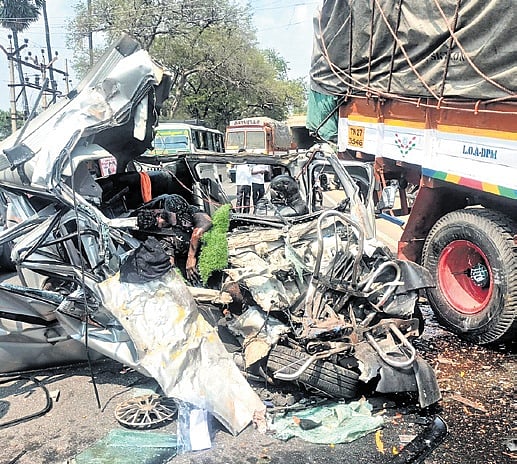By Wole MosadomiMINNA — Residents of the nineteen northern states of the country are predominantly farmers who produce crops, such as yams, maize, millet, rice, potatoes, onions, pepper, and melon, among others, on a large scale.This farm produce is produced almost all year round because of the irrigation farming system practised in the region.But the sustenance of this is now endangered by high-level banditry, insurgency and herdsmen killings that currently face states in that part of the country where farming is the main occupation.
For many years, the region had been mainly engaged in massive food production, sufficient for internal consumption within Nigeria and even for export, and the foodstuffs were readily available throughout the year at affordable prices.Unfortunately, there had been a negative turnaround in the past few years due to insurgency in some states of the North-East, especially Borno, Adamawa and Yobe.However, in recent years, bandits have invariably taken over the states, preventing farmers from accessing their farms, either to till the land or even harvest their produce where they succeeded in farming.

The farmers, both husbands and wives, and in some cases their children, are gruesomely maimed, murdered, with their ancestral homes and farm produce and barns completely set on fire, thereby rendering them incapacitated.The frequent ravaging of communities and killing of the people has subsequently led the residents to flee their homes for safer havens outside the Northern part of the country.These developments have invariably led to scarcity of foodstuffs and attendant high prices of food items across the country.
NIGERNiger State was for about four years under the siege of bandits, as 18 of the 25 local government areas were completely taken over by bandits.In some cases, the flags of the bandits were hoisted in some local government areas which, in other words, showed total takeover of such local government areas by the marauding men.Within these years, farming became difficult as farmers could not access their farms.
In some cases, the bandits allowed the farmers to till the land and plant but chase them away during harvest, after which they either took over the harvest or completely set the the farms on fire.This in no small way, contributed to the scarcity of food produced not only in Niger State but across the country.The ugly situation was relatively brought under control but another serious and devastating situation came in June 2024 when bandits invaded Kontagora during which there was massive destruction and burning down of farms across the local government.
Soon after this, armed men invaded Allawa and Bassa communities in Shiroro Local Government in what could be described as a horrible attack, during which no fewer than 30 people, mostly farmers, were beheaded.A joint security task force was immediately deployed to the area and normalcy returned to the LGA, as farmers who could not access their farms in the past, even in some villages as Kuchi and Dangunu, Zazaga, Adun, and Ishau in Paikoro LGA, now experience relative peace in their communities.However, there are still isolated cases in Rafi local government area, especially in Wowo under Kogoma Central and Pandogari and also communities in Gidigori community.
Bandits are said to be operating freely in these communities.Investigation carried out by our correspondent showed that this is made possible by the influx of bandits who refused to surrender their arms after a peace agreement between Kaduna State Government and the bandits.They now gain access freely through Birnin Gwari and some forests in Kaduna State to Niger where they terrorise residents who are mostly farmers.
However, the aggressive steps already taken by the state governor, Muhammed Umaru Bago, on mechanized farming across the 25 LGAs of the state, matched with heavy security deployment on the farms has brought some respite, which has marginally helped reduce the prices of food stuff in the state and some parts of the country.KATSINAWhile there is sad news of poor yield in agricultural produce from other states, there is, however, cheering stories from Katsina State.This is because the state witnessed bumper harvests in 2023 and 2024, despite the activities of bandits.
The chairman, All Farmers Association of Nigeria, AFAN, in Katsina State, Yau Umar Gwajo-Gwajo, boasted that the state (2024) witnessed good crop yields but added that the quality was not as much as what was obtained during the previous year (2023) and attributed this to abundant rainfall in the state.He said though there were initial challenges from crop-eating worms, the problem was addressed with the heavy rainfall, and pesticides.Even where there were security challenges, the chairman said affected local government areas came out with good yields by harvesting their crops with less security setbacks.
He, however, admitted that only about three per cent of farmers were not able to plant and harvest their crops due to insecurity in the state.Some of the farmers in some insecurity-prone communities said they succeeded in cultivating their farmlands under the watch of local and federal security operatives.One of them, Malam Aminu Lawal, a resident of Jibia LGA, said: “Some members of my community and I were usually escorted to farmlands located away from the communities by joint security outfits to harvest our produce.
’’There are however reports in some communities affected by insecurity that bandits demanded some form of levy or taxes before allowing them to till or harvest crops from farmlands.Sources from such areas said the farmers are made to pay such levies collectively or individually, depending on how large one’s farmland is.When Governor Dikko Radda was asked about the issue during an interview, he said such incidents might be happening in parts of the state but noted that information of such incidents had not reached him.
PLATEAUAlthough the insecurity situation in the state has abated, farmers in many of the affected communities are unable to access their farms because they have been chased out of their ancestral homes by bandits and herdsmen.Many farmers have refused to move to their farms for fear of being kidnapped, maimed or killed and have, therefore, limited their farming to their homes.Aside from banditry, the farmers in communities in Plateau are also facing the challenges of lack of modern farm implements and agricultural inputs.
Some of the affected farmers who spoke with our correspondent, said any step taken by government without giving total freedom to farmers to have unhindered access to their farms would be an exercise in futility.A female farmer, Mrs. Anyamus Magic, said: “The intervention by government is okay but not sustainable.
Ending insecurity and allowing people to farm and cultivate whatever crops they desire is the way to ensure food security.“Farmers still make use of local farm implements and we can only farm very small portions. Worse is the fact that there is insecurity in the farms and women are raped and killed, so they stopped going to farms.
ZAMFARAIn Zamfara State, farmers have found it difficult, if not impossible, to access their farms because of heightened banditry in farming communities in the state.The magnitude and extent of attack faced by farmers depend on areas the bandits have set up their operational bases.In some places, the farmers are only allowed to gain access to their farms after payment of levies imposed them, while others damn the consequences and still go about plowing their farms, despite the open threat posed by the bandits.
Recall that three most wanted notorious bandit leaders, including Ado Alero from Zamfara Central zone; Dogo Gide from Zamfara Western zone and Bello Turji from the Northern zone, had in the early farming season dubiously told farmers in their respective territories to feel free to go about their farming activities, with the assurance that none of them would be attacked.But the assurance was merely meant to lure the vulnerable farmers to their early graves. It was nothing more than a death trap.
The farmers were wary of such open invitation by the bandit leaders.When it was time to harvest their crops, the bandits imposed heavy taxes on the farmers as a condition to harvest their crops and this posed a very serious challenge to the farmers.It was learned that in some communities, farmers were only allowed to access their farms after being forced to work for the respective bandit heads on their own farms.
Some of the villagers were forced to spend a whole day at the bandit’s farm working from morning till evening without providing even water or food.The bandits impose levies on rural communities in the state. For example, between October and November 2024, the bandits, operating under the leadership of a notorious kingpin, known as Dantsito, one of Ado Alero’s boys, imposed a massive levy of N172,700,000 on 25 villages in Tsafe West under Tsafe Local Government area controled by Alero.
The villages and their levies imposed on them include Gijinzama—N8.5million; Dankolo—N5million, in addition to 20 bags of Soybeans; Gunja—N7 million; Kauyen Kane—N5 million; Kurar Mota—N6 million; and Sabon Garin Gulbi—N2.5 million; Kibari —N3 million; Karda—N5 million; Daga Cikin—N3 million; Biya—N5 million; Barebari—N6 million; and Kauyen Magaji—N7 million.
Other villages include Kwaren Maisaje—N10 million; Magazawa—N10 million; Maciya—N5 million; Unguwar Danhalima—N5 million; Unguwar Rogo—N5 million; Katanga—N5 million; Magazu—N5 million; Sungawa—N15 million; Rakyabu—N15 million; Yalwar—N2.7 million; Tsageru—N5 million; Gidan Anne—N7 million; and Kunchin Kalgo—N20 million.It was learnt that as a result of the inability of most of these villagers to raise the stipulated amount to pay the bandits, many of them abandoned their homes and communities to avoid being slaughtered by the bandits.
Farmers in the other zones controlled by Dogo Gide, who placed a whopping N100 million levy on them, fled for their dear lives when they could not raise the money.Although Bello Turji from the Northern zone of the state did not enforce the levy imposed on the farmers, his boys attacked some communities in Maradun and Zurmi LGAs, kidnapped and killed many, after collecting ransom amounting to millions of naira.KADUNAKaduna State is one of the states frequently attacked by the bandits, despite the collaboration between the state government and the joint security task force set up by the Federal Government to stem the problem.
However, the state government negotiated a peace deal with the bandits which seems to be working.With the recent peace pact reached between the two parties, both farmers and Fulani herders in Birnin-Gwari, Chikun, Igabi, Giwa LGAs and adjoining communities have since returned to their farms and other animal husbandry activities without fear or molestation.It is envisaged that there would be bumper harvests next farming season, as farmers in the areas have started clearing farm lands due to the return of peace.
Markets in these communities are now flourishing with people coming from far and near to buy and sell and this has improved the socio-economic status of the locals and enhanced the revenue collection profile of affected local governments areas.Consequently, both the farmers and state government expect a crash in prices of food items next year, if the deal with the bandits subsists.ADAMAWAThe general situation of farming activities is fast improving, compared to the past four to five years when insurgents, kidnappers and other organized groups hindered food production greatly.
In the past years, Boko Haram insurgents held sway and greatly hindered farming activities in the entire northern senatorial and central zones of the state.In the southern zone, which is largely riverine and green areas, farmer/herders conflicts had reared its ugly head, preventing farmers from accessing their farms.Recall that the entire Adamawa North has borders with Borno State, the dreaded Sambisa Forest, which is the base of Boko Haram and the Cameroon Republic.
The proximity makes it difficult for farmers to go to the farm without being killed by the insurgents, while in the Southern zone, seven of the nine local government areas are in Fadama, which is the desirable habitat for cattle rearers, thus creating friction between the local farmers and the cattle breeders.Currently, farmers can access their farms but with caution, as pockets of attacks are still being recorded in some places at intervals.The bold steps taken by the state government and security agents are responsible for the present decline in threats to farmers but the prices of foodstuffs have continued to soar.
In fact, government and security agents’ effort are yielding results, even as prices of farm produce have continued to soar.Community leaders said their efforts in prevailing on the state government to tackle insecurity led to the present peaceful co-existence between herders and farmers in the state.Mr.
Bilham Jocktan, a prominent community leader in Girei Local Government Area, told Vanguard that the ban on movement of migrating herders at night has greatly curtailed conflict between them and farmers.He maintained that the entire riverine local government of Adamawa State, which hitherto was known to be the battle ground between Fulani cattle rearers and farmers, was now peaceful.While concrete steps had been taken by government to stem the ravaging bandits, the big question on the lips of consumers is why has the prices of food continued to rise, in spite of good harvests?BENUEOver the years, Benue State has been the epicentre of activities of armed herdsmen and the development has left the state grappling with worsening insecurity.
The implication is that a large number of the people known for their prowess in farming have been forced to vacate their communities, with countless number of them abandoning their farms and taking refuge in Internally Displaced Persons, IDPs, camps scattered all over the state.Today, the state, which goes by the sobriquet, the Food Basket of the Nation, can hardly produce food to feed its indigenes, let alone the entire nation.That is the price the people have been paying for close to two decades since the armed herders attacks in close to 18 of the 23 local government areas, LGAs, of the state escalated.
Unfortunately, till date, the situation has not abated as the state continues to witness repeated attacks and killings by bandits and armed herdsmen who have turned the rural communities into theatres of war.The worst hit are the renowned food hubs of the state, including Katsina-Ala, Ukum, Logo, Agatu, Gwer West, Makurdi, Okpokwu, Ado, Kwande, Guma, Otukpo, Buruku, and Apa Local Government Areas, LGAs, among others.While the attacks continued to escalate, the communities are left in ruins and the farms deserted, resulting in crisis, while the state is faced with an overwhelming humanitarian crisis.
Just few weeks ago, Governor Hyacinth Alia also raised concern over the humanitarian situation in the state, lamenting that the state currently shelters over 500,182 IDPs who vacated their farms, taking refuge in camps designated for them.The governor said: “Benue State, renowned as the ‘Food Basket of the Nation,” has unfortunately been at the forefront of displacement crises in Nigeria’s north-central region. Since 2018, over 1.
5 million individuals have been compelled to abandon their homes due to communal conflicts, often stemming from competition over scarce natural resources.“As per the IOM, International Organisation of Migration) report of June 2024, our state currently shelters 500,182 displaced persons, accounting for 38 per cent of the displaced population in the North-Central region.“These individuals are dispersed across 26 camps and 185 host communities, enduring conditions that are far from ideal.
”While emphasising his administration’s unwavering dedication to addressing the root causes of displacement and fostering sustainable solutions, the governor regretted that the attacks had persisted, affecting the populace, noting that the recent attacks affected “over 1,000 households between December 29 to date, according to IOM latest report.”In a concerted effort to have the IDPs return to the farm, Governor Alia secured farmland, measuring over 10, 000 hectares at Agungu – Gbajimba in Guma Local Government Area of the state to promote sustainable farming and mitigate the impact of food shortages on the displaced persons.Also, over 210 farmers’ co-operatives are to be formed by displaced farmers across the state, and the beneficiaries are expected to receive extensive training in rice, maize, cassava, and vegetable farming, covering all stages of production.
The governor, who disclosed this when he recently launched the Action Plan on the IDP Durable Solutions, explained the programme was expected to provide the IDPs access to land, subsidised inputs, and improved seedlings, as well as increased yields and revenue.According to him, the beneficiaries will also have guaranteed market access with government-controlled prices and integration into the larger value chain.He, however, noted that the bigger picture of the IDP Durable Solutions was to have the IDPs safely returned to their ancestral homes to continue with their normal lives and engage in the farming activities they were known for, assuring that efforts were on to have the IDPs return to the ancestral homes.
This has, however, been stalled, following recent wave of killer herdsmen attacks on farming communities in the state, which have created more IDPs’ challenge for the state.The post Insecurity: How bandits, killer herdsmen have impacted farming, food supply appeared first on Vanguard News..
Top

Insecurity: How bandits, killer herdsmen have impacted farming, food supply

Residents of the nineteen northern states of the country are predominantly farmers who produce crops, such as yams, maize, millet, rice, potatoes, onions, pepper, and melon, among others, on a large scale.The post Insecurity: How bandits, killer herdsmen have impacted farming, food supply appeared first on Vanguard News.










